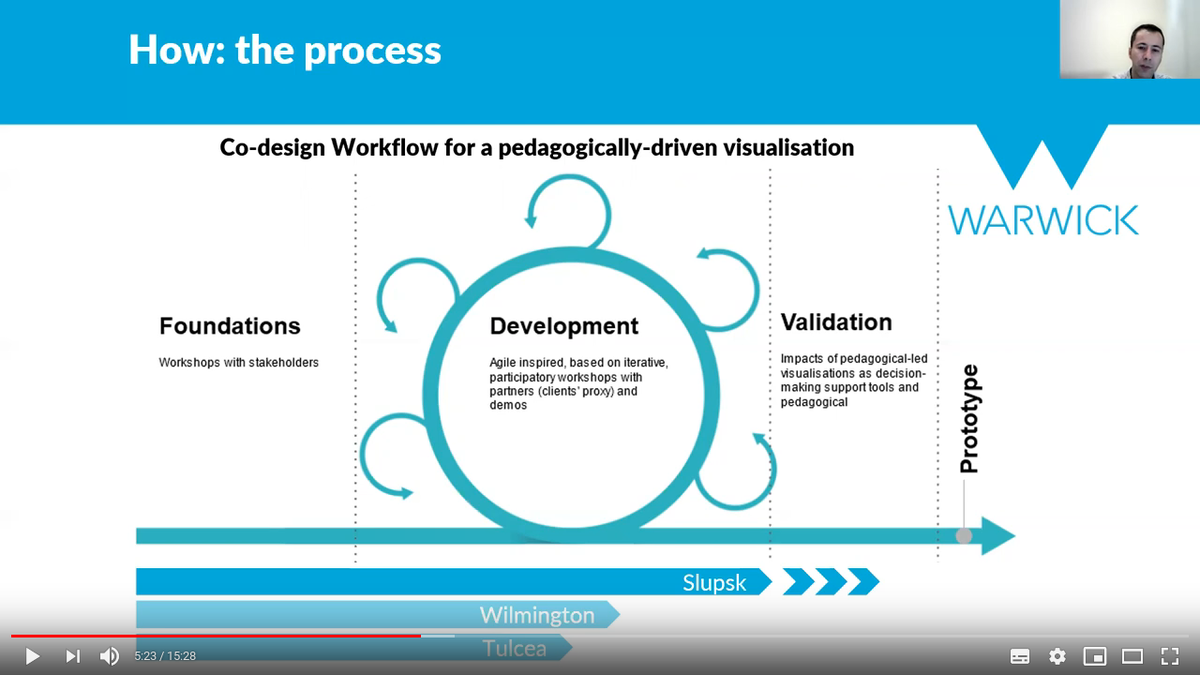Co-creating visualisations about the urban nexus. Some results

In this talk we present how we have implemented a co-design process with our partners and stakeholders for the creation of “grounded” FEW nexus' visualisations that enforce decision making on FEW nexus.


Carlos Cámara-Menoyo
Architect. PhD. Lecturer. Life-long Learner. Transdisciplinary.
I love learning, teaching and researching, as well as sharing and visualizing data, specially with maps. I have a technical and social background and my multiple research interests are centered around the commodifications between cities, technology and society within informationalism and free culture paradigm. So far, I have applied that approach on the topic of social and spatial inequities.
João Porto de Albuquerque
Director of the Institute of Global Sustainable Development
Professor Porto de Albuquerque (IGSD, University of Warwick) is a geographer and computer scientist. His research adopts a transdisciplinary approach to digital geographies and geographic information science, intersecting urban data science, information management and development studies. His transdisciplinary research on socio-ecological-technical urban systems not only emphasises cross-border collaboration between the (environmental) sciences, social sciences and humanities; it also goes beyond academic disciplines to engage in co-production and participatory research with non-academic stakeholders.
Greg McInerny
Ass. Professor
Ass. Prof. Greg McInerny (CIM, University of Warwick) research focuses on Data/Information Visualisation, bringing software and sciences into relation with the arts, humanities and social sciences. His research works with ‘visualisation’ in four ways: 1) using visualisation as a research method, 2) visualisation design techniques and tools, 3) critical visualisation Studies, and 4) understanding visualisation in the real world. In combination, these sub topics offer a way into understanding ‘visualisation’ as a subject, as a set of methods and as an object, and through a variety of frames as user, tool designer/developer and critical researcher, and through understanding everyday relationships with visualisation.
Related
- Creating Interfaces tools & maps; visualization process
- Visualisation tool for a grounded FEW Nexus
- Co-designing participatory data visualizations to evaluate OpenStreetMap’s equity: The Good, The Neutral and The Ugly
- Maps, world-views and neutrality: squaring the circle?
- Digital tools for knowledge exchange and sustainable public food procurement in community kindergartens: A case study in Słupsk, Poland